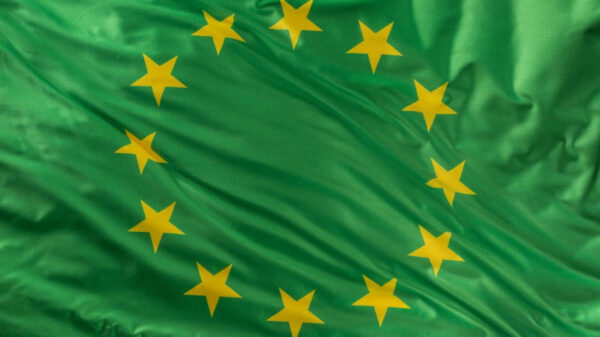 Getty Images
Getty ImagesDiscounted TVs ahead of the Euros football tournament helped slow price rises in shops in June, new figures show.
Shop prices rose at an annual rate of 0.2% last month, down from 0.6% in the year to May, according to retail trade body the British Retail Consortium (BRC) and research firm NielsenIQ.
Cheaper butter and coffee also meant food price inflation continued to ease.
Separately, Sainsbury’s reported strong grocery sales for the past three months but said the wet weather earlier this year hit sales of non-food goods.
The UK’s second largest supermarket said that in the 16 weeks to 22 June sales had grown 3% compared with the same period the previous year, driven by what it described as a “market beating” performance from its food business.
However, Sainsbury’s Argos business saw sales fall, with the soggy spring weather dampening sales of garden equipment and outdoor furniture. Argos also saw weaker demand for consumer electronics, particularly in gaming.
‘Euros fever’
Helen Dickinson, chief executive of the BRC, said retailers had offered deals on televisions in June to “capitalise on the Euros fever”.
The price of non-food goods dropped by 1%, a steeper fall than May’s 0.8% decline, she said.
Food inflation slowed to 2.5% in the year to June compared to 3.2% in May.
Researchers suggested that price rises will remain subdued amid tighter household spending.
However, while price rises have slowed to the lowest rate since October 2021, many food items and other goods are still more expensive than they were before the pandemic and Russia’s invasion of Ukraine, leaving household budgets squeezed.
“With uncertainty around discretionary spending, we expect the intense competition across the marketplace to keep price increases as low as possible this summer,” said Mike Watson, head of retailer and business insight at NielsenIQ.
Official figures showed that the UK’s headline inflation rate – which charts price rises across the economy – hit the Bank of England’s 2% target for the first time in almost three years in May.
However, even though inflation is falling, it does not mean the prices of goods and services overall are coming down, just that they are rising at a slower pace.
The Bank of England has also put up interest rates to try to dampen down consumer demand, driving up mortgage rates and rents.
Experts are also warning of a bumpy road ahead.
The Middle East conflict continues to affect trading in the Red Sea, a popular shipping route, forcing firms to take longer and more expensive diversions.
As a result these higher logistics costs could be passed on to consumers.
“The last few years should serve as a warning that where business costs rise significantly, consumer prices are forced up too,” Mr Watkins said, urging whoever wins Thursday’s general election to address “some of the major cost burden weighing down the retail industry”.
































